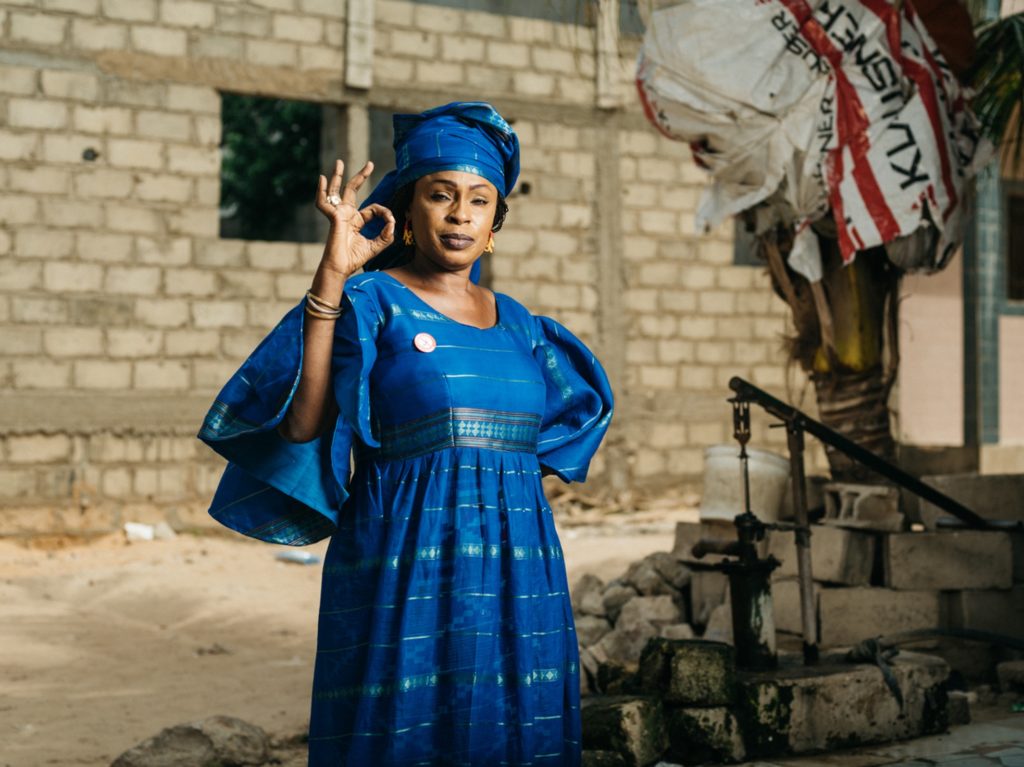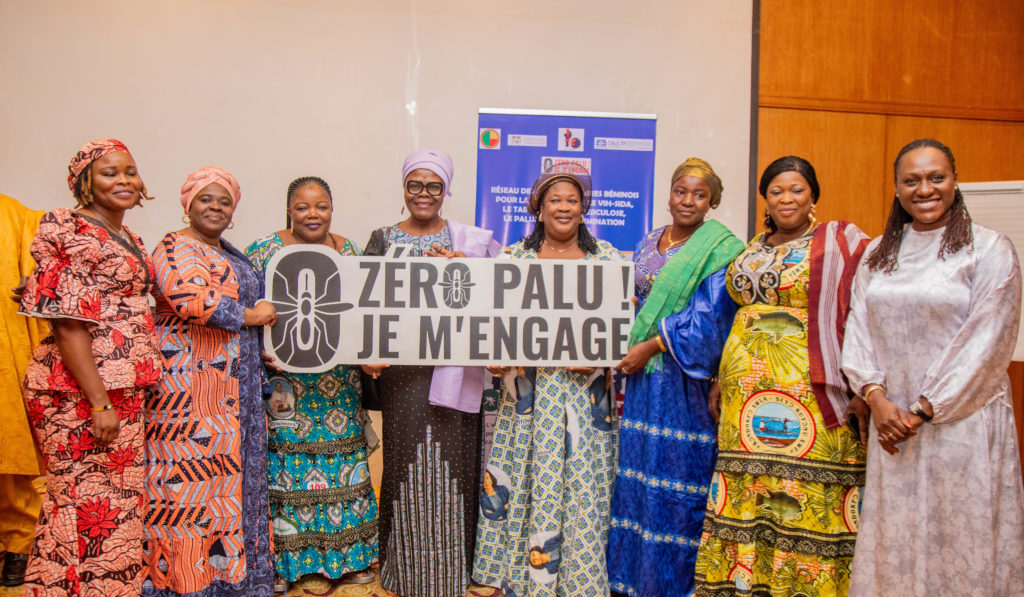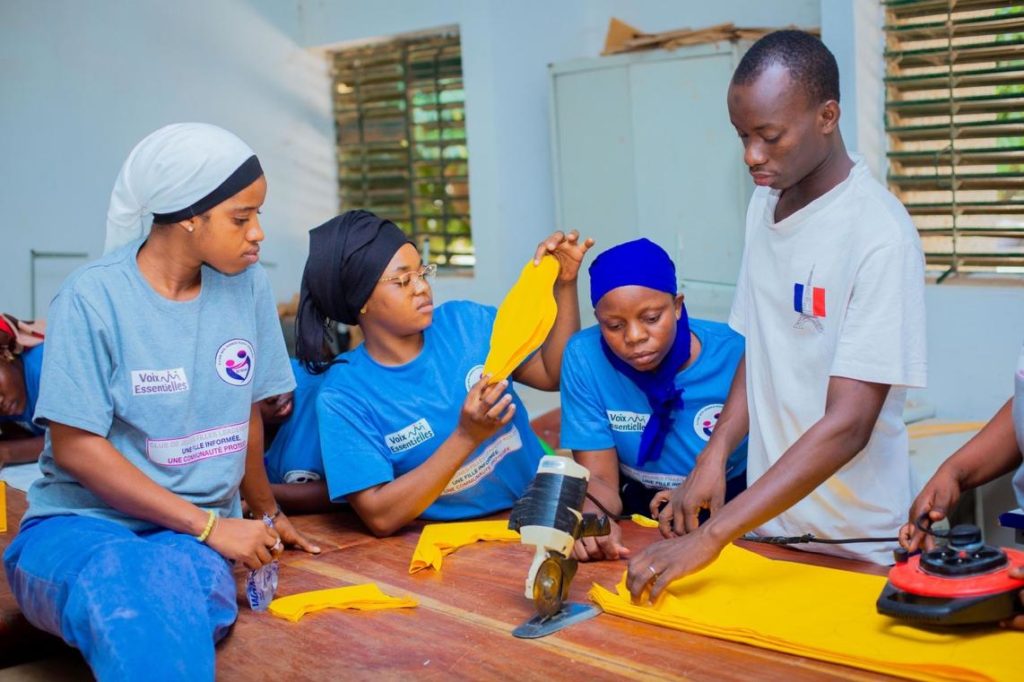Achieving Universal Coverage through Africa Sanitation Policy Guidelines

On the 10th of June, 2021, the African Council of Ministers on Water (AMCOW) launched the African Sanitation Policy Guidelines (ASPG), a new initiative to help improve national and subnational sanitation and hygiene policy across the continent. ASPG initiative came out of lessons from AMCOW’s support to four countries to develop sanitation policy. The launch followed extensive consultations and the findings of a 26-country assessment conducted by AMCOW in 2019. The assessment concluded that existing sanitation policies and strategies, wherever they existed, did not foster the enabling environment necessary to drive access to safely managed sanitation.
With the establishment of the new sanitation framework, real change became more likely than it might look. At the launch of the ASPG, governments made commitments to align their sanitation and hygiene policies to the guidelines. A few months later, Kenya proved that it can be done – it became the first country to announce its ASPG compliant sanitation and hygiene policy. An additional set of countries have followed closely, by submitting the country demand formsexpressing interest in the process. These countries include Burkina Faso, Cameroon, Ethiopia, Sudan, Sierra Leone, Niger, Nigeria, Liberia, Tanzania, Zimbabwe, and Mozambique.
The Partnership Coordination Platform (PCEP) held a meeting in October 2021 to engage its members to provide the requisite support to the governments that have expressed interest so far. This meeting resulted in commitments from partners that have so far seen extensive engagements that led to policy review processes initiated in Cameroon, Zimbabwe, Sierra Leone, and Ethiopia by UNICEF.
I.What ASPG says
The policy guidelines aim to ease the process of resolving country-level enabling environment bottlenecks that stand in the way of African governments in meeting their national, regional, and global sanitation and hygiene obligations. They provide direction in functional policy drafting, broad stakeholder engagement, monitoring, and generic technical content specific to sanitation and hygiene service provision. They are applied for review, revision, and development of sanitation policies and implementation strategies. The ASPG is designed to influence and shape the process and content of an inclusive sanitation policy including equity consideration. They specifically cover faecal waste (human urine, faeces), anal cleansing materials, and hygiene (menstrual hygiene management; handwashing with soap and water) with the ambition of achieving safely managed sanitation for all. The document is presented in four broad areas as follows;
- Part 1 – The Context – Chapter 1: About the Guidelines, the scope of the Guidelines and how to apply the Guidelines
- Part 2 – Policy Development Process – Chapter 2: The decision-making process, the steps to policy review & development
- Part 3 – Contents of a Policy – Chapters (3-10): The Vision, Objectives, & Principles; Sanitation Systems & Services; Hygiene & Sanitation Behaviour Change; Institutional arrangements; Regulation; Capacity development; Funding; Monitoring, Evaluation & Review.
- Part 4 – Developing policy implementation strategy – Chapter 11: Implementation strategy versus policy and The process of developing an implementation strategy.
The guidelines are not meant to be prescriptive, but more supportive, appreciating the various contexts in the 55 countries in Africa. The ASPG is a rich document, with additional resources as annexes that have been applied successfully over the years. It has been done before successfully, and it can be done now with success! As we can see below, a number of solutions for Africa’s challenges can be found in the continent’s own experience, as seen over the years in countries and communities that have effectively addressed complex issues. For all areas dealt with by the ASPG, we can find at least one successful African story, which can both inspire and provide practical guidance to other parts of the continent.
Sanitation Systems and Services – Experiences from South Africa
They mainly define sanitation systems and services and why they are essential in a sanitation policy. The factors to consider for specifying sanitation systems and services in a policy are well outlined. This section of the guidelines demonstrates how policies can embrace various sanitation systems by enabling non-sewered (onsite) systems, sewered (sewerage and offsite treatment) sanitation systems, and service levels. The inclusion of both systems in urban environments has been shown to rapidly expand sanitation coverage, especially to the poor and the marginalised, leading to universal access.
South Africa’s eThekwini Water and Sanitation, whose work in the Durban area was recognised internationally in 2014, with the Stockholm Industry Water Award, demonstrates that Africans can achieve progress through improved systems. Although the eThekwini municipality still faces enormous challenges in this sector, systemic solutions, combining the offer of services free of charge for low-income households with high rates for those who can pay, have produced significant progress. Since the 2000s, the local authorities have been addressing the challenges of sanitation in the Durban area with a decentralised approach, in which non-sewered, onsite systems have been improved and embraced as viable, efficient ,and cost-effective solutions. Facing financial and topographic difficulties in the areas with low-income communities, the local eThekwini offered a combined service of water and sanitation. Residents received 300 litres of water per day, while using a dry sanitation system, with safe onsite disposal of human waste.
The installation of thousands of ablution blocks and urine-diverting toilets also provided sanitation options for informal settlements, with an approach that sought to maximise both financial capacities with the characteristics of both the terrain and the local communities.
Hygiene And Behaviour Change – Experiences from Rwanda
Traditionally, behaviour change is not included in service-oriented water and sanitation policies, and this omission undermines their progression. ASPG, in this section, sheds light on what sanitation and hygiene behaviour change elements are and why they should be integrated into a sanitation policy. It also lists factors to consider when formulating sanitation and hygiene behaviour change policies. In this case, ASPG leans on the sector experience that market-based solutions are vital in bridging , the willingness to aford a toilet , the prevailing access and the sustainability gap. Therefore, customer knowledge is critical in deepening the demand and sustainability of related products and services. This knowledge needs targeted attention to trigger households rights and responsibilities, and to strengthen linkage with public and private service providers.
A positive example comes from Rwanda, where in 2019 the government launched a new initiative around hygiene and behaviour change that placed the issue on a much wider context. Its National Handwashing Sub-Strategy 2019-2024 described poor handwashing with soap practice as a “cross-cutting concern”, causing preventable mortality in the country. Improving it became a priority to be implemented “in the home, schools, health facilities, and throughout all public and private institutions”.
The initiative was organised in three areas: creation of demand for handwashing practices; strengthening the environment to support handwashing promotion and practice; and building the necessary supply of facilities and products. As the substrategy stated, these actions “aim to create a country where all people – men, women, boys, girls, and people with disabilities – can wash their hands with soap at all critical moments”. The initiative’s target was any authority or group with impact on hygiene behaviour, including all levels of government, non-government organisations (NGOs) and the private sector.
Covid-19 tested the resilience of the Rwandan initiative, but the results remained auspicious. In February 2021, a USAID report about the effects of the pandemic on access to water, sanitation, and hygiene in the country said that “self-reporting handwashing levels are high in Rwanda during the pandemic period”. Regarding supply of facilities and products, USAID stated: “We found little evidence of persistent or widespread shortages of soap and other hygiene products”.
Institutional Arrangements – Experiences from Senegal
Lack of clarity in institutional mandates and in accountability is probably one problem that bedevils efforts to provide sanitation and hygiene services in Africa and many developing countries worldwide. The few African countries that have made a meaningful effort in clarifying institutional roles and responsibilities appear to be making headway in meeting their national sanitation targets. The ASPG explains the meaning and importance of specifying and including institutional arrangements in a national sanitation policy and what to consider. This is in line with the good governance needed. In addition to clarity, inclusion of various stakeholders in the service provision ecosystem is of particular importance. This is especially providing space for public sector to delegate some elements of service provision to the private sector.
Senegal is the first Sub-Saharan African country to have formally endorsed the ASPG. Even though the country regroups aset of policy documents, including the Hygiene Code and the 2016-2025 Sectoral Policy Letter, most of these texts have yet to provide a clear description of stakeholders’ roles and responsibilities. Senegal has therefore kickstarted a vast program designed to update sanitation policy and strategy documents.
While this broad review will allow the country to ensure alignment with the ASPG, it also provides a great opportunity for increased efficiency and coordination amongst national bodies and authorities across the value chain. Documents to be reviewed include the Sanitation Code, the National Sanitation Strategy, and a set of Decrees and Orders, namely the one aimed on the certification of mechanical emptying. Through the inclusion of the ASPG in national policies as of 2023, Senegal aspires to fast track universal access to safely managed sanitation in both urban and rural areas by 2030.
Regulation – Experiences from Zambia
Lack of regulation and requisite regulatory mechanisms is the soft underbelly of providing adequate and sustainable access to safe sanitation and hygiene in Africa. For the continent to achieve safely managed sanitation services, sanitation policies need to stipulate a regulatory framework that ensures the development of safe sanitation systems and delivery of services, which comply with prescribed laws, regulations, rules, bylaws, guidelines, and standards. Several initiatives are already underway to strengthen sanitation regulation in the African continent.
In Zambia, the creation in 2018 of a regulatory framework for the management of sanitation waste in urban communities has been a key step forward for WASH services. The Urban Onsite Sanitation and Faecal Sludge Management: Framework for Provision and Regulation in Zambia aims to create a regulatory framework to underpin the proper functioning of the whole sanitation chain, including on-site sanitation and faecal sludge management. In Lusaka, some 85% of the population are dependent on non-sewered services.
One result of the framework has been that the country’s 11 regional utilities, which used to be purely responsible for sewered sanitation, are now formally responsible for non-sewered sanitation services as well. Improvements to the sanitation tariffs – charges placed on water bills to pay for sanitation services – will make more funding available for these non-sewered services. The national regulator is developing a monitoring system to track the performance of each utility and provide national rankings.
In addition, the Zambia Bureau of Standards is improving standards for sanitation technologies, and the Zambia Environmental Management Agency is developing a wastewater quality monitoring programme. The regulatory framework and the improved standards are making it easier for the private sector to enter the sanitation market and provide services on behalf of the public sector.
Capacity Development – Experiences from South Africa
A weak enabling environment means weak institutions, which translates to frail institutional structures, systems, and human development capability. This situation precludes public agencies, formal and informal businesses, non-profit entities, and individuals from executing their defined roles in sanitation and hygiene service provision. ASPG emphasises the inclusion of capacity building, which was a critical call voiced from stakeholder consultation sessions. Countries or markets that have invested in institutional and human capacity development are likely to accelerate universal coverage and be at the forefront of reaching their national sanitation targets.
In South Africa, the national government has made progress in building skills in the sanitation workforce. The initiative commenced in 2015 with a skills gap analysis that showed urgent attention was needed across a range of public sector institutions, including the Department of Water and Sanitation, municipalities, catchment management agencies and water boards. Since then, the creation of a Municipal Infrastructure Support Agency is supporting local governments to increase their skills in a range of areas including water and sanitation; and in 2019, the country launched a National Water and Sanitation Master Plan which incorporated a chapter dedicated to capacity-building. The plan recognises that its ambitions will not be achieved “without addressing the issue of capacity – the skilled people required to undertake the work”.
Different public sector entities, such as the DWS and the WRC, have been tasked with a range of activities designed to improve the skills of people working in the sector. Career paths are being defined, with specific training and on the job experience; a programme for recruiting experienced staff in South Africa, and then internationally, is being implemented; and post-graduate skills are being developed to strengthen South Africa’s science, technology and innovation capability, amongst other initiatives. The government is also working with national and international donors to improve capacity in the sanitation sector, as well as requiring bidders for government contracts to contribute towards capacity-building initiatives.
Funding and Financing – Experiences from Chad
Africa cannot raise its levels of access to sanitation without increasing capital investment to develop complete and functional service chains. Furthermore, sanitation is not a profitable and attractive business; hence public resources are required to bridge the financing gap in capital and operational costs for small and medium enterprises. These businesses are critical in supporting the public sector through the delegation of services. Delegation accelerates service provision and makes the market system for sanitation and hygiene functional. ASPG is encouraging a departure from the traditional approach, where governments have only funded sewerage capital investment and related operational costs.
The guidelines emphasise that African sanitation policies need to be realistic. Therefore, it is emphatic that the government should allocate public resources to develop and maintain both non-sewered and sewered sanitation. In this area, Chad offers a very good example. Helped by the development of its oil industry in the 21st century, which led to a five-fold increase in GDP per capita between 2001 and 2014, Chad has made significant progress in the way it invests in sanitation. In 2003, a government document said: “There is practically no basic sanitation infrastructure, in either rural or urban areas. Everything needs to be done in this field”. A decade later, the improvement was clear: in 2015, the proportion of the population with access to improved toilets had reached 14.8%, and then 16.1% in 2019 (United Nations). The use of improved unshared toilets rose to 8.2% in 2015 and 12.1% four years later. Those numbers expose how far behind Chad still is from universal coverage, but also reveal real achievements, which have been made possible by increasingly effective funding and financing for the sanitation sector.
The government’s road map for an Open Defecation Free (ODF) Chad in 2030 has included an investment plan. The country’s goal, according to the government’s 2021 Voluntary National Review on sustainable development, is that “from now until 2030, to ensure the access by everyone, within equitable conditions, to sanitation and hygiene services and put an end to the open defecation”.
Chad has been considering different arrangements and sources of financing for its development goals, including the area of sanitation. “(…) On top of financing from traditional sources, some innovative routes are to be explored for implementing the SDGs in Chad”, stated the government in 2021. External funders, from development banks and foreign governments to civil society organisations, have played an important role, including the African Development Bank and the European Union.
A global challenge
Access to basic sanitation and hygiene services is a primary concern globally, with 3.6 billion people lacking safely managed sanitation and 2.3 billion without basic hygiene in 2020. To focus attention and resources towards alleviating this problem in such regions, the UN declared access to safe water, sanitation, and hygiene as Sustainable Development Goal 6. Under which Target 6.2 aims at achieving access to adequate and equitable sanitation and hygiene for all and end open defecation, paying particular attention to the needs of women and girls and all those in vulnerable situations by the year 2030.
The world is slowly realising that access to basic hygiene and sanitation is not just about constructing facilities like handwash stations, pit latrines, and flush toilets. It is about developing a complete and functional sanitation system backed by a robust enabling environment comprising multifaceted policy, institutional, regulatory, governance, and financing and marketing arrangements. And strengthening this environment, which forms the foundation of sustainable service provision, begins with promoting adaptive and supportive policies, taking into account gender issues and a multisectoral approach.
In Sub-Saharan Africa, 72% of over 962 million people lack essential sanitation services, and 31.9% practise open defecation.
This deprivation undermines economic development by exacerbating the health risk factors of the general population, mainly for those who are already vulnerable (children under five , pregnant women, poorest and marginalised people, persons with disabilities, etc..) . The practice specifically downgrades the dignity and health of women and girls, who form the backbone of economic production and development in the region. Across the African region, a key factor to people lacking basic sanitation emanates from cultural considerations , and a weak enabling environment. Various scenarios present themselves in the 55 countries in Africa, that when closely mapped through systems thinking, indicate that the enabling environment is critical.
Based on this thinking, the African Union’s member states led by the Africa Ministers Council on Water (AMCOW) in 2015, adopted The AfricaSan Ngor Declaration, with a vision to achieve universal access to adequate and sustainable sanitation and hygiene services and eliminate open defecation by 2030. This high-level development and political commitment are meant to establish an enabling environment to strengthen the sanitation and hygiene systems. The N’gor monitoring report in 2018, indicated a risk of the commitments not being met like the MDGs if the continental leadership does not radically change tact.
The new African sanitation guidelines provide the continent with essential standards and references for future sanitation and hygiene policies improvements. They can be tailored to each country and consider existing diversity between countries, fragile states situation, etc. The ASPG stipulates what should be included in policies to resolve challenges faced by populations. The document aims to support governments in achieving their targets through policies that reflect lead to governance, regulation and financing of sanitation within their contexts and realities. With the new policy guidelines, the continent now stands a chance to benefit from an improved enabling environment that is a structured policy space that will facilitate the achievement of its goals and turn the page on the current state of inadequate sanitation and hygiene services for its populations.
The ASPG is a document that not only targets duty bearers, who are policymakers (both at national and sub-national levels), but calls for the engagement of all stakeholders that shape the policy making and implementation processes. For example, civil society groups can play a huge role in supporting stakeholder participation and monitoring financing and implementation of national action plans. Service providers, local governments and the private sector can deliver better services by closely engaging communities. It, therefore, calls on inclusive decision making, which experience shows, is not an impossible task.
A collective effort
The development of the African Sanitation Policy Guidelines has been a genuinely collaborative initiative bringing together the whole continent. AMCOW mobilised sanitation and hygiene experts across Africa to provide a robust peer review. This effort followed a consultative process that included meetings with various governments and partners guided by information from the policy survey carried out in 26 countries. Afterwhich, 12 country policy specific consultative processes took place to finalise the guidelines.
An implementation strategy is in place by AMCOW to ensure that the guidelines are well disseminated across the continent to create awareness and interest. An ASPG Demand Management System has been created to capture demand for ASPG awareness meetings with governments and stakeholders in countries and understand the policy support required. A country demand form is designed to capture the needs of a government after the awareness meetings. This form provides an opportunity for senior government officials to indicate what their priorities are at the national level concerning policy and what kind of support is required to align to the ASPG standards.
The countries are set to undergo an extensive sanitation policy assessment that will be considered as a baseline for the process, as the first step. This will provide information for policy benchmarking that will be presented in the Africa Sanitation Policy Index (ASPI). This will determine how much needs to be done to ensure that the sanitation policies and strategies are ASPG aligned. All this information will be captured in the already designed ASPG Uptake Tracking System (Dashboard) using the ASPG Policy Assessment tool (ASPAT) The ASPG is to be rolled out to all the 55 countries of Africa, a task that is not easy, but doable with the support of various partners. This led to the development of the Partner Coordination System (PCEP) that enlists multiple stakeholders and their contribution to the ASPG process in the countries. This is to ensure a coordinated approach to the high level of quality during the rollout of the ASPG.
High-level advocacy is key to the success of the ASPG rollout. Engaging senior policymakers in this process is the winning formula of success. Time and resources will be invested in continuous advocacy meetings and a wide stakeholder engagement to ensure no one is left behind during the policy process.The ASPG provides a wide range of resources that requires investing in the various stakeholders Capacity Building. This process presents an excellent opportunity for documenting both the learning and sharing, as part of Knowledge management for policy processes. All these will be led by the AMCOW secretariat providing Technical Backstopping. Previous experiences across the continent clarify that Africa can achieve the indicators of progress outlined in the guidelines because they have been done before, even if only in a few countries. This time around the focus is on increasing the scale of success to the entire continent.
Africa has rightfully and decisively opted to pursue something that its leaders and populations can deliver. With political will and determination to design the right policies towards a common goal, the African Sanitation Policy Guidelines should generate a high level of confidence and certainty amongst the continent’s authorities, summarised by these encouraging words: it can be done.


